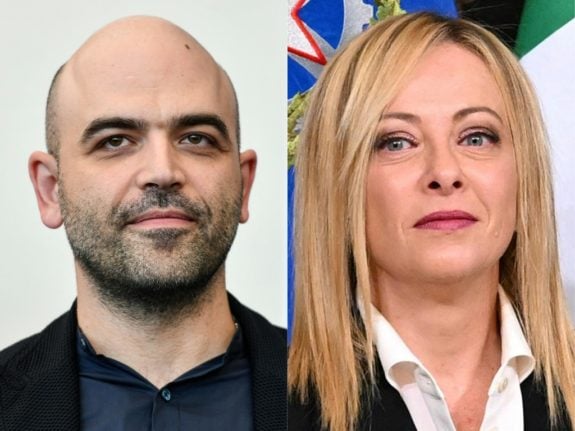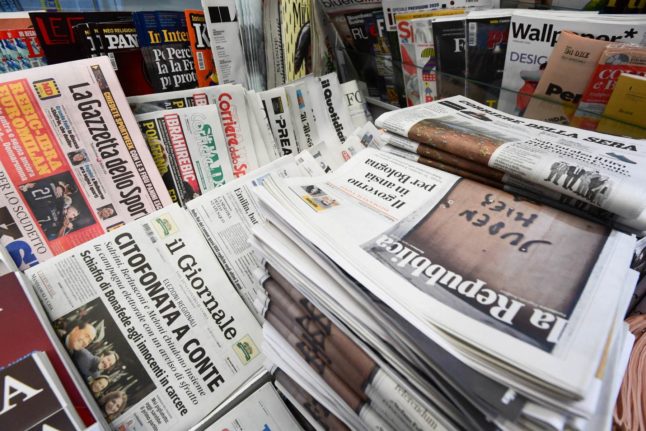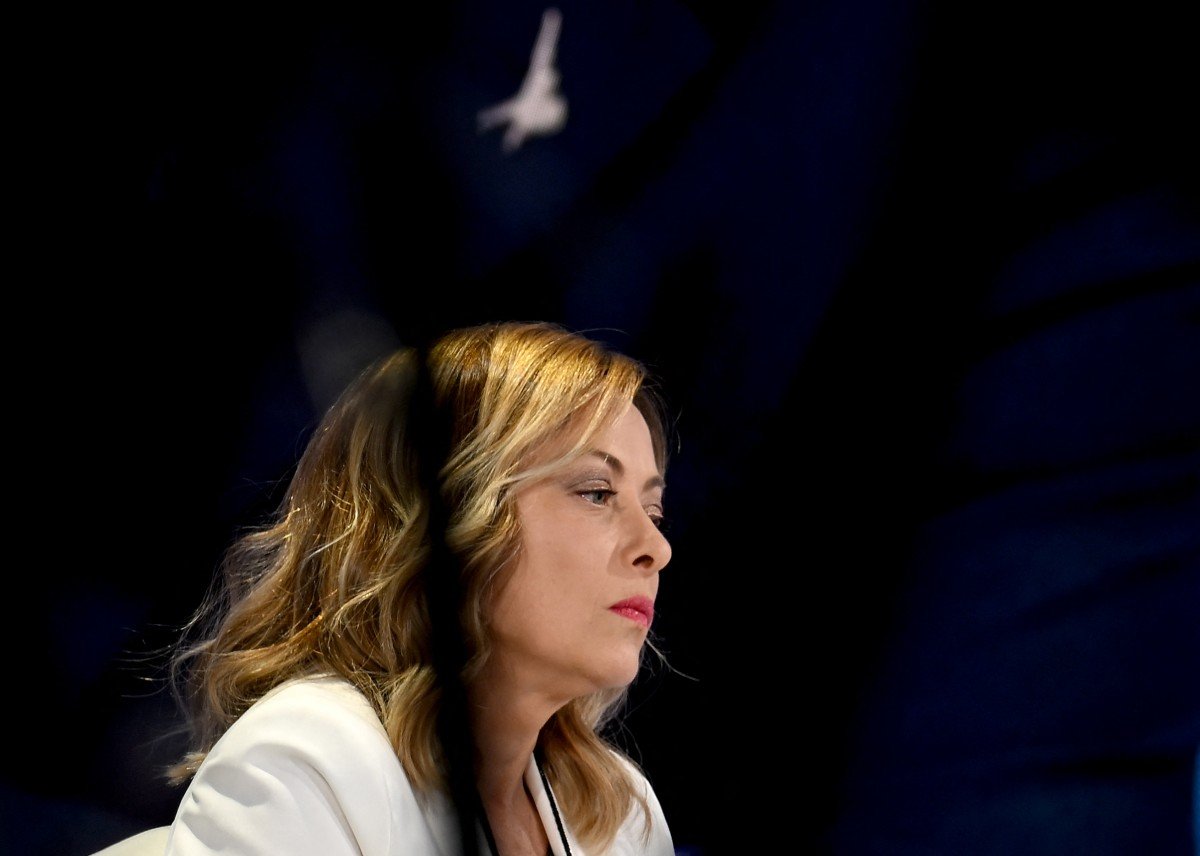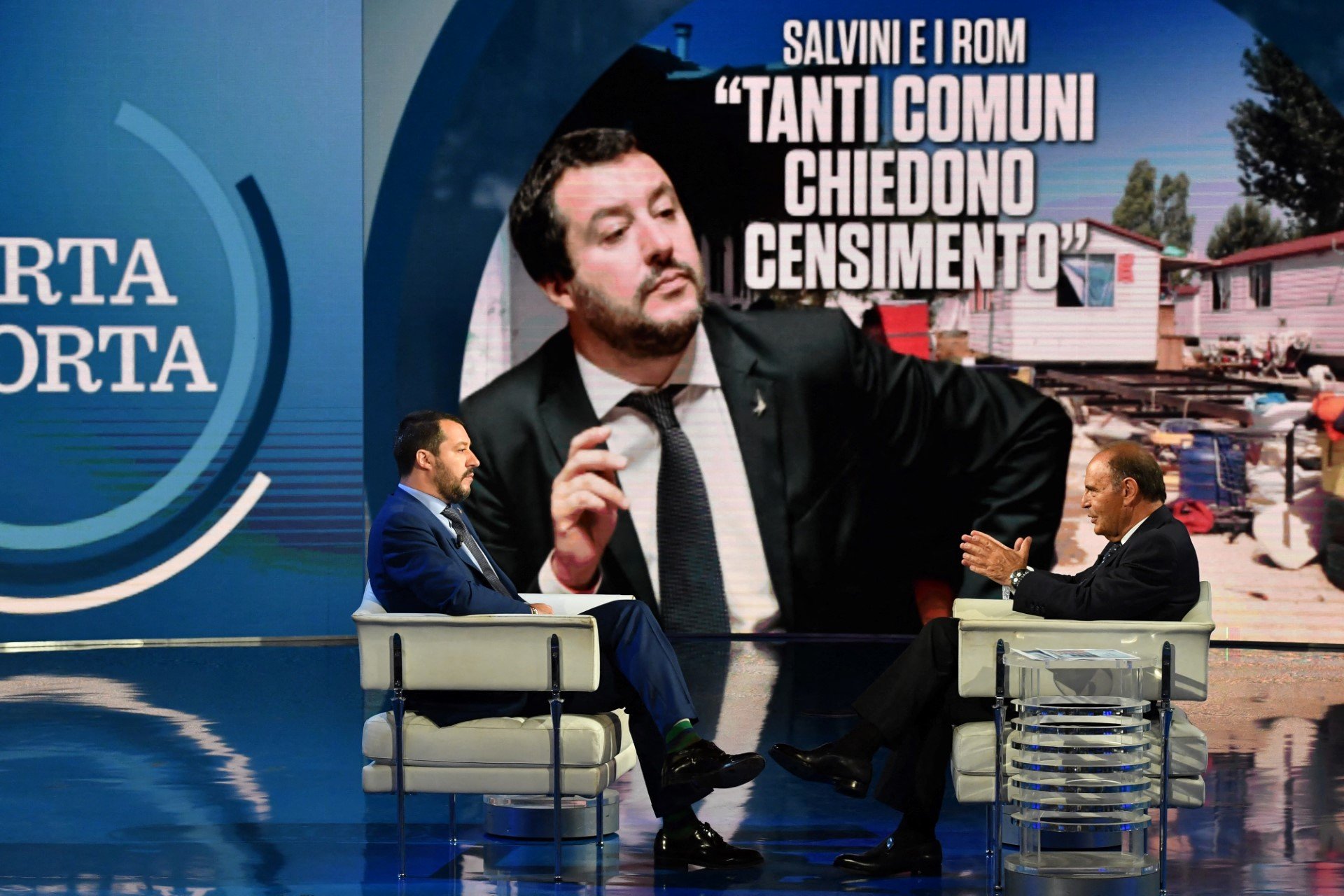Italian anti-mafia journalist Roberto Saviano stands trial next week on defamation charges brought by Giorgia Meloni, now Italy’s prime minister, for a 2020 outburst criticising her stance on migrants.
Meloni’s far-right Brothers of Italy was at the time a small opposition party, but took office last month after a sweeping election victory driven in part by its promises to stop migrants crossing the Mediterranean.
Saviano, who is best known for his international mafia bestseller “Gomorrah” faces up to three years in prison if convicted in the trial, which opens on Tuesday.
The 43-year-old told AFP it was an “unequal confrontation, decidedly grotesque,” while press freedom groups warned it sent a “chilling message” to journalists.
Watchdogs say such trials are symbolic of a culture in Italy in which public figures – often politicians – intimidate reporters with repeated lawsuits, threatening the erosion of a free and independent press.
READ ALSO: What you need to know about press freedom in Italy
Italy ranked 58th in the 2022 world press freedom index published by Reporters Without Borders, the lowest level in western Europe.
The case dates back to December 2020 when Saviano was asked on political TV chat show “Piazzapulita” for a comment on the death of a six-month-old baby from Guinea in a shipwreck.
He pointed a finger at Meloni and Matteo Salvini, the leader of the anti-immigrant League party, which is now part of her coalition government.
Meloni said in 2019 that charity vessels which rescue migrants “should be sunk,” while Salvini, as interior minister that same year, blocked the vessels from docking.
“I just want to say to Meloni, and Salvini, you bastards! How could you?” Saviano said on the show.
Meloni sued, as did Salvini, whose separate case is expected to go to trial in February, under Article 595 of Italy’s penal code, which carries a sentence of up to three years in jail.
PEN International, an organisation that defends free speech, sent an open letter to Meloni this week urging her to drop the case. “Pursuing your case against him would send a chilling message to all journalists and writers in the country, who may no longer dare to speak out for fear of reprisals,” it said.
READ ALSO: Journalists an ‘easy target’ for Italy’s mafia, says watchdog
Meloni will be represented by lawyer Andrea Delmastro, who she recently nominated deputy justice minister.
Saviano said he has been sued for defamation “dozens of times,” but only Meloni and Salvini’s suits have gone to trial.
The author, who has been under police protection since publishing “Gomorrah” due to threats from the mafia, said the tactic was to “intimidate one in order to intimidate 100.”
‘Passivity and inaction’
Within weeks of taking office, Meloni’s government showed it would be tough on migrants by blocking rescue vessels from its ports last weekend, in the process sparking a row with France, which took in one of the ships.
“This extreme right-wing government needs enemies who meet two criteria: not having a voice (like the migrants) or being very well known so that the punishment can appear exemplary,” he told AFP.
“It will be even more difficult (for journalists) to report on what is happening and express an opinion if the prospect is having to defend one’s freedom of expression in court and seeing your words put on trial when they criticise power and its inhuman policies,” Saviano said.
In 2017, the latest available data from the National Statistics Institute (ISTAT) showed nearly 9,500 defamation proceedings were initiated against journalists in Italy.
Sixty percent were dismissed, while 6.6 percent went to trial. Defamation through the media can be punished in Italy with prison sentences from six months to three years.
But Italy’s Constitutional Court urged lawmakers in 2020 and 2021 to rewrite the law, saying jail time for such cases was unconstitutional and should only be resorted to in cases of “exceptional severity.”
Ricardo Gutierrez, head of the European Federation of Journalists (EFJ), told AFP the “passivity and inaction of the government and parliament” could only be interpreted “as complicity with the enemies of press freedom.”





 Please whitelist us to continue reading.
Please whitelist us to continue reading.
A real troublemaker is Saviano, who needs to be put in his place for his ridiculous accusations.
Potential criminal liability for libel of a public figure, especilially a politician, is absolutely antithetical to freedom of speech.